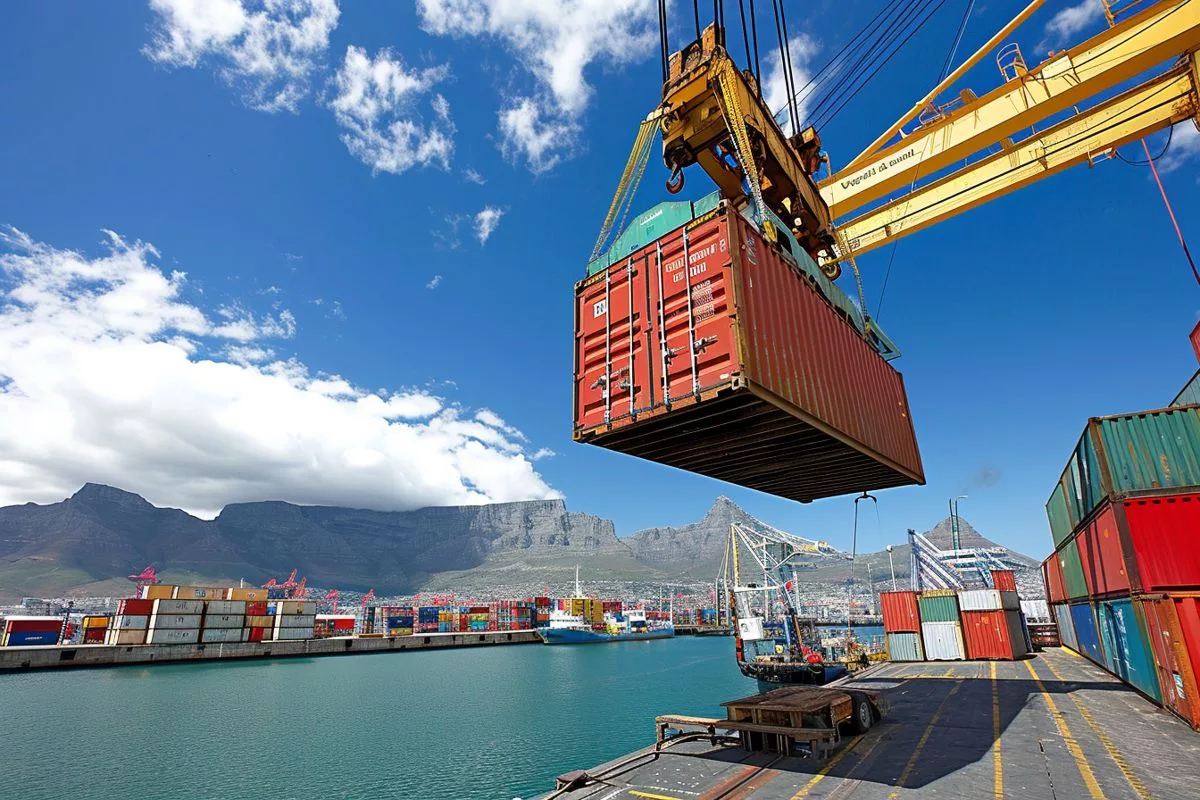Cape Town urgently needs private sector involvement in its port operations due to persistent inefficiencies and low global rankings. While the private sector is set to commence operations at the Port of Durban, the national government remains silent on fast-tracking private sector involvement in Cape Town’s port. The city plans to assemble key players, including the private sector, to establish definite schedules and deadlines for a private sector alliance and leverage expertise, knowledge, and innovation to chart a sustainable path for growth and development. The move could result in additional revenue, job creation, and taxes within five years.
The metropolis of Cape Town is in urgent need of private sector involvement in the operations of its port due to persistent allegations of extreme inefficiencies. Despite the private sector commencing operations at the Port of Durban in April, the national government remains silent on the timeline for fast-tracking private sector vitality into Cape Town’s port operations. This move could result in an additional R6 billion in export revenue, the creation of roughly 20,000 direct and indirect jobs, and the accumulation of over R1.6bn in additional taxes within five years.
The metropolis of Cape Town is at a crossroads, pushing for a clear timetable for private sector involvement in the operations of its port. While the private sector is set to commence operations at the Port of Durban in April, the national government remains silent on the timeline for fast-tracking the crucial influence of private sector vitality into the operations of the port in Cape Town.
This urgent plea is a response to the persistent allegations of extreme inefficiencies haunting the city’s port infrastructure. Cape Town, represented by Alderman James Vos, the Mayoral Committee Member for Economic Growth, amplifies the need for a swift and comprehensive reform. A leading shipping company’s recent choice to bypass the port of Cape Town in some areas further underscores this pressing need.
Alderman Vos states firmly, “There is an immediate need for correction, but the Freight Logistics Roadmap, a vital document outlining the path ahead, continues to be withheld by the national government, in spite of our continual calls for a transparent procedure.”
The City’s Determination for Reform
Far from retreating, the city plans to assemble key players, including the private sector, to put pressure on the government to establish definite schedules and deadlines for a private sector alliance for the port in Cape Town.
Tangible proof of the port’s deteriorating performance is demonstrated by the World Bank’s recent low global ranking. The Container Port Performance Index 2022, issued by the World Bank, places the port of Cape Town at an alarming low 344 out of the 348 ports evaluated. “This should serve as a serious warning for the national government,” Alderman Vos observes, “indicating the urgent need for decisive action to ensure a lively trade environment for our city.”
The benefits that could be reaped from private sector involvement in Cape Town’s port are substantial. The Western Cape’s Department of Economic Development and Tourism predicts that this move could result in an additional R6 billion in export revenue, the creation of roughly 20,000 direct and indirect jobs, and the accumulation of over R1.6bn in additional taxes within five years.
The Prospects of a Public-Private Partnership
In light of this, the city appreciates the proactive steps taken by Rajesh Dana, the Port of Cape Town’s manager, to address the ongoing technical issues that hamper port deliveries. However, Alderman Vos maintains that a comprehensive solution to these issues will only be attainable once the private sector has a direct interest in managing port operations.
Alderman Vos emphasizes that overcoming this hurdle requires cooperation and mutual reliance, leveraging the expertise, knowledge, strategies, and innovation across stakeholders. The port’s logistical challenges cast a broad shadow over the city’s overall economy and mandate urgent intervention from the government.
Alderman Vos concludes, “As a city, we pledge to work in close cooperation with the national government and private entities to foster a fruitful partnership. By capitalizing on each other’s strengths and resources, we can chart a sustainable path for growth and development in our city.”
1. Why does Cape Town need private sector involvement in its port operations?
Cape Town needs private sector involvement in its port operations due to persistent inefficiencies and low global rankings. It could result in additional revenue, job creation, and taxes within five years.
2. What is the current status of private sector involvement in Cape Town’s port operations?
The national government remains silent on fast-tracking private sector involvement in Cape Town’s port, while the private sector is set to commence operations at the Port of Durban in April.
3. What is the city’s plan to establish private sector involvement in its port operations?
The city plans to assemble key players, including the private sector, to establish definite schedules and deadlines for a private sector alliance and leverage expertise, knowledge, and innovation to chart a sustainable path for growth and development.
4. What benefits could be reaped from private sector involvement in Cape Town’s port?
According to the Western Cape’s Department of Economic Development and Tourism, private sector involvement could result in an additional R6 billion in export revenue, the creation of roughly 20,000 direct and indirect jobs, and the accumulation of over R1.6bn in additional taxes within five years.
5. What is the World Bank’s recent ranking of the port of Cape Town?
The Container Port Performance Index 2022, issued by the World Bank, places the port of Cape Town at an alarming low 344 out of the 348 ports evaluated.
6. What is Alderman Vos’s stance on private sector involvement in the port operations of Cape Town?
Alderman Vos maintains that a comprehensive solution to the port’s technical issues will only be attainable once the private sector has a direct interest in managing port operations. He emphasizes the need for cooperation and mutual reliance across stakeholders to chart a sustainable path for growth and development.











